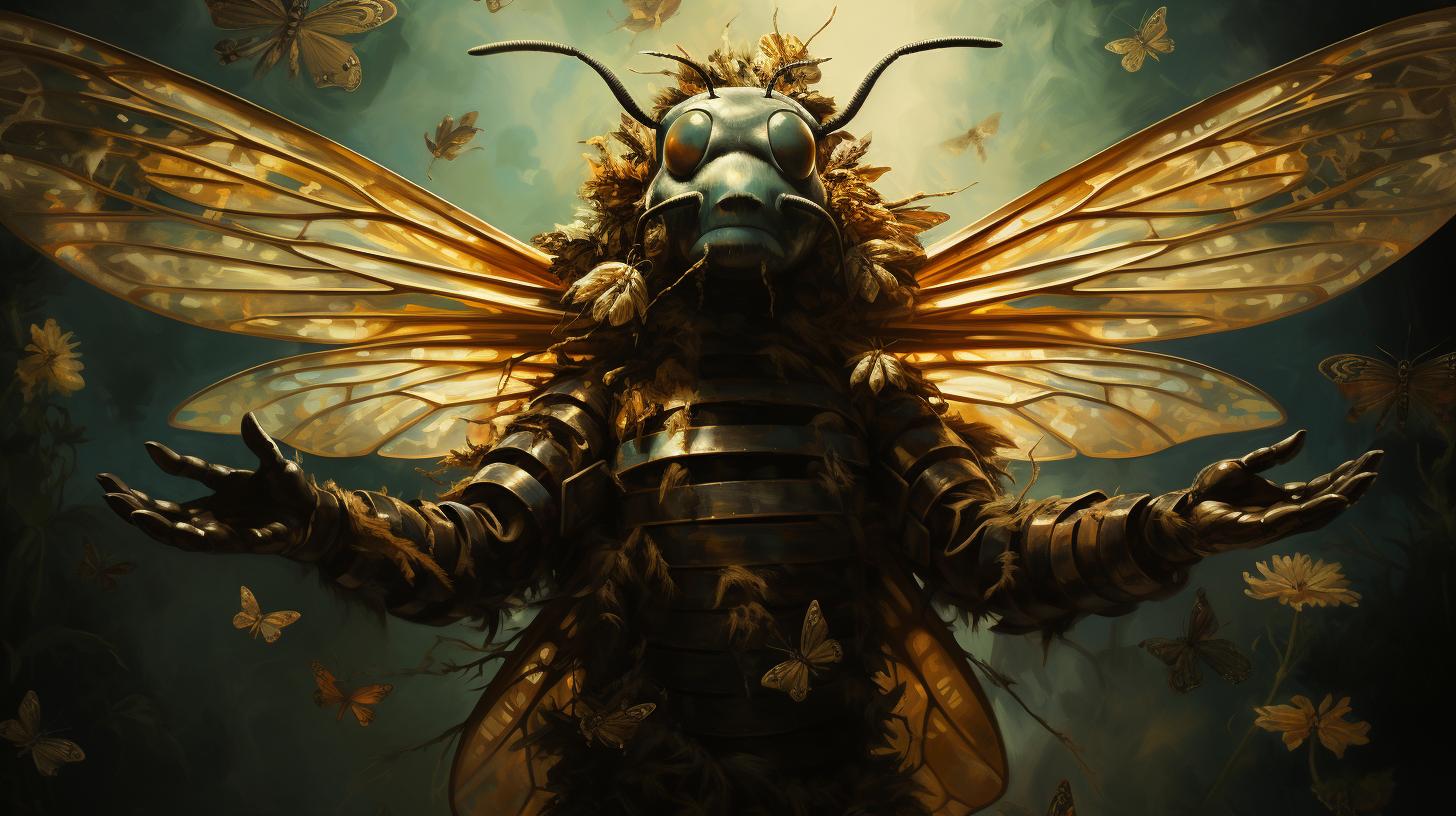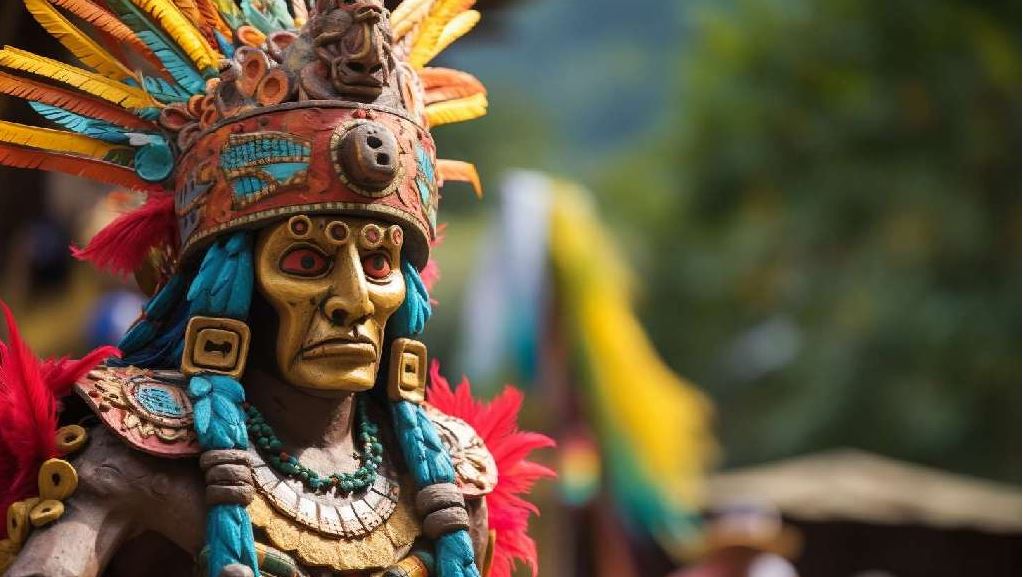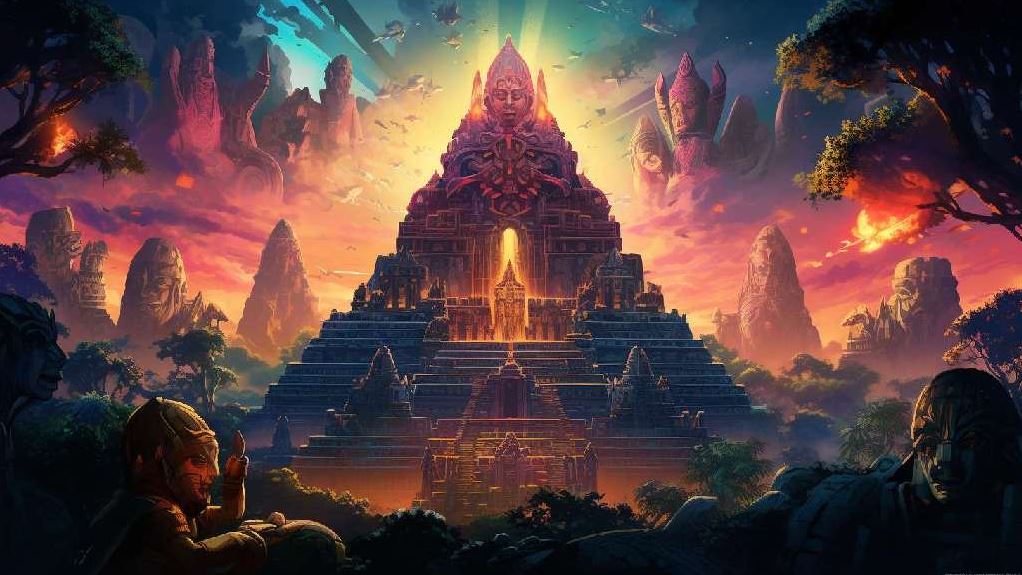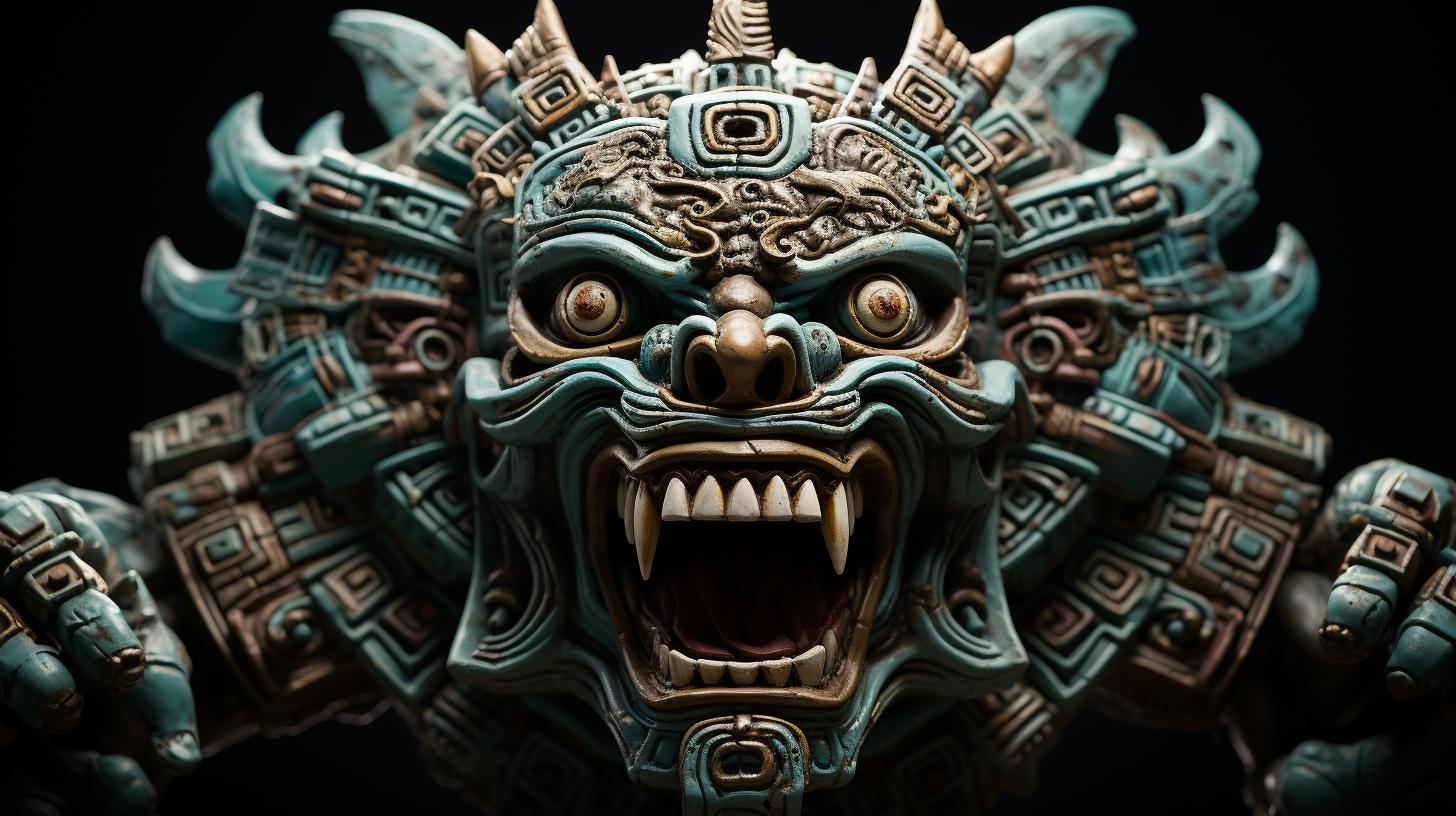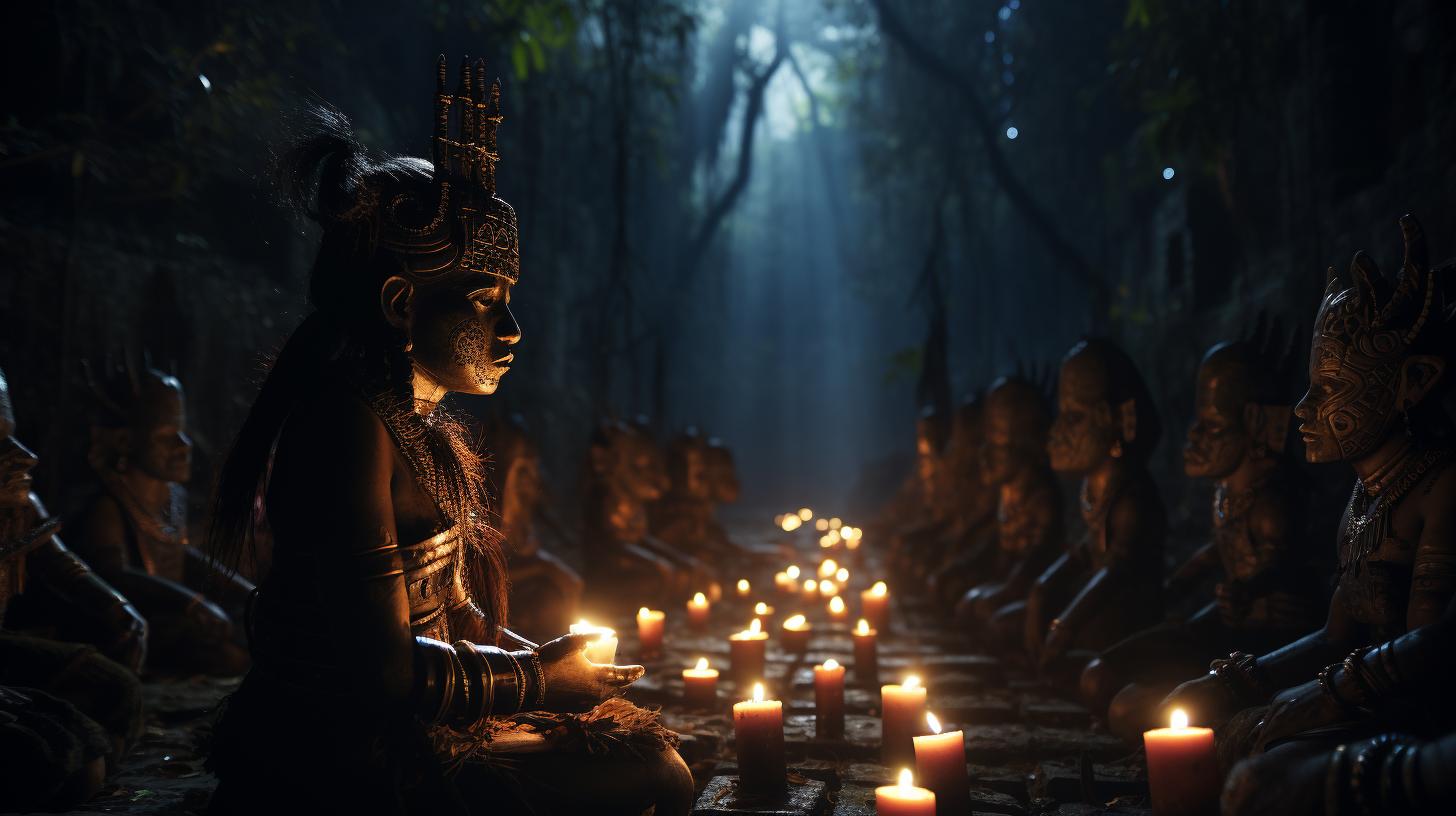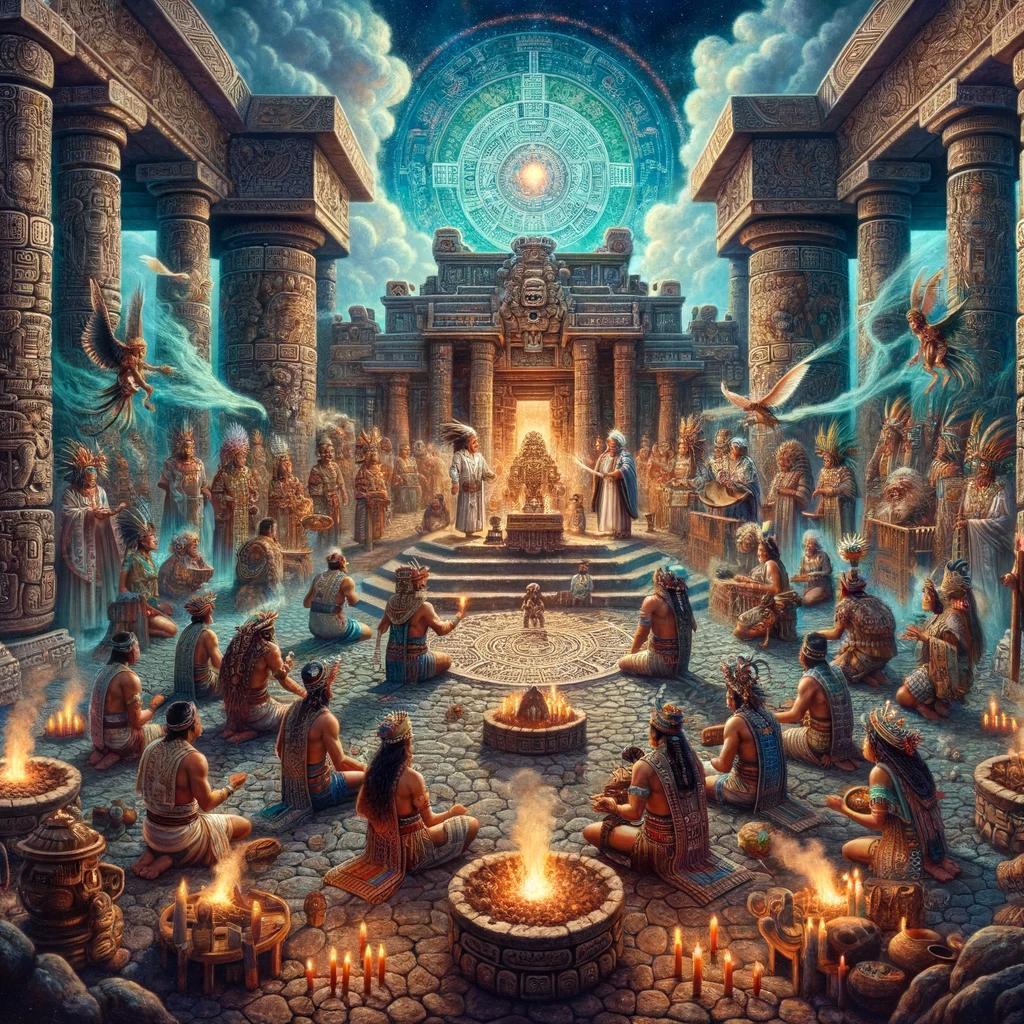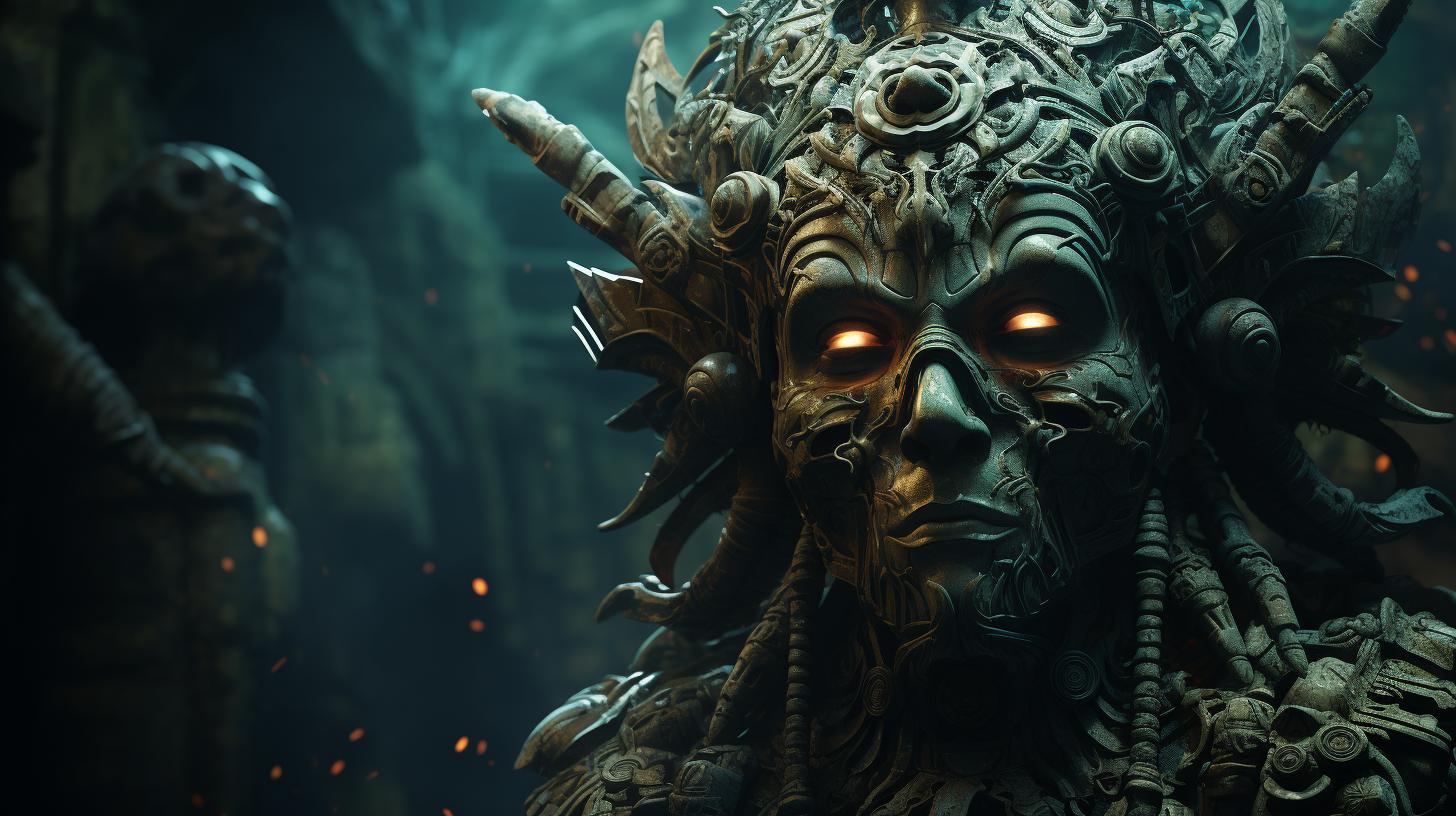Acan: The Enigmatic Mayan God of Intoxication and Revelry
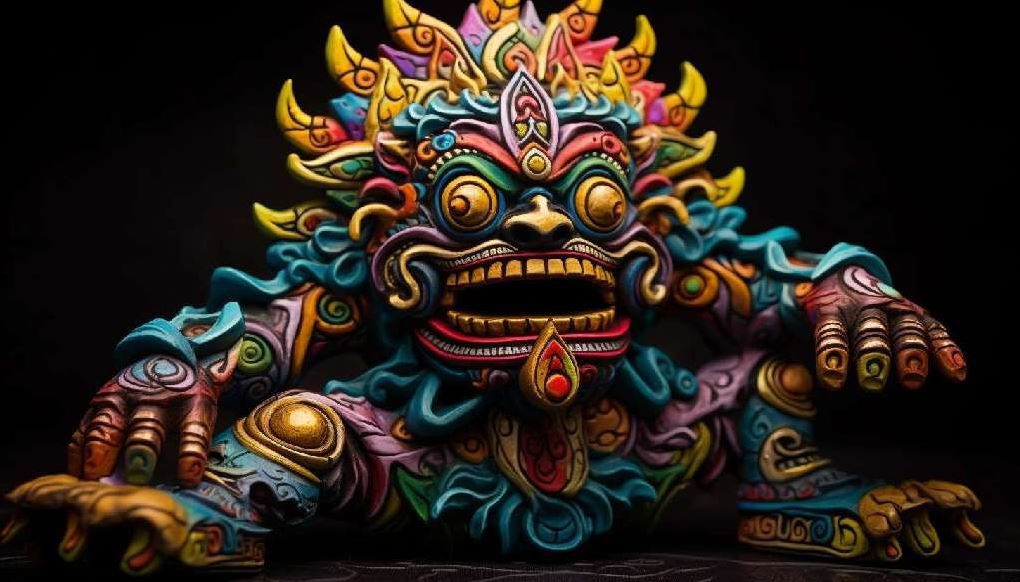
Acan, the Mayan god of alcohol and revelry, holds a unique place in the rich tapestry of Mayan mythology. Revered for his association with intoxication and enigmatic behavior, Acan played a significant role in Mayan civilization.
One of his notable contributions was the creation of balché, a honey-based fermented drink enjoyed by warriors before battle. Acan’s close friendship with Cacoch, the god of creation, adds yet another layer of fascination to his character.
As we delve into the world of Acan, we unravel the symbolism, practices, and controversies surrounding this enigmatic deity, showcasing that he is more than just a god of intoxication.
The Origins of Acan: Exploring the Mayan God of Alcohol
Deep within the rich tapestry of Mayan mythology lies the enigmatic figure of Acan, the god of alcohol. Revered and celebrated by the ancient Mayans, Acan played a vital role in their culture and spiritual beliefs.
As we delve into the origins of Acan, we uncover a fascinating deity associated with intoxication and revelry.
Acan’s significance stems from his creation of the renowned balché, a fermented honey drink enjoyed by Mayan warriors. This sacred beverage, made from the bark of the balché tree, held immense cultural value and was consumed by the brave soldiers before heading into battle.
The name Acan itself carries meaning, translating to “gemido” or “rugido,” which denotes a sense of primal expression and power. This vividly captures the essence of Acan, who, when inebriated, revels in boisterous behavior and delights in entertaining those around him.
Within the intricate web of Mayan mythology, Acan forms a unique bond with Cacoch, the god of creation. This friendship adds an intriguing layer to Acan’s persona, showcasing his complexity and influence within the pantheon of Mayan deities.
By further exploring the origins of Acan, we gain a deeper understanding of the intricate beliefs and practices of the ancient Mayan civilization. It is through this exploration that we come to appreciate the spiritual significance and cultural context surrounding the Mayan god of alcohol – Acan.
Acan’s Role in Mayan Civilization: Intoxication and Revelry
One of the prominent aspects of Acan, the Mayan god, was his vital role in Mayan civilization, particularly in relation to intoxication and revelry. Acan was not only associated with the consumption of alcohol but also embodied the spirit of merriment and celebration.
His influence extended beyond mere intoxication, as he symbolized the joyous and uninhibited nature of the Mayan people during gatherings and ceremonies.
- In Mayan society, Acan’s presence and offerings of balché, a fermented honey drink, heightened the atmosphere of celebration and unity.
- Warriors, before engaging in battle, sought the blessings and courage of Acan by consuming balché enemas, believed to enhance their bravery and battle prowess.
- Acan’s spirited personality, often described as boisterous and comical, added an element of liveliness to religious rituals and gatherings.
The cultural significance of Acan in Mayan civilization proves that his role extended far beyond being just a lord of alcohol.
He represented the communal spirit, fostering connections among the Mayan people through shared revelry and celebration.
The Significance of Balché: Acan’s Fermented Honey Drink
One of the key aspects of Acan, the Mayan god of alcohol, is his association with a popular beverage called balché. This fermented drink holds significant cultural and ritualistic importance in Mayan civilization.
Balché is crafted using a combination of honey and the bark of the balché tree, resulting in a unique and potent concoction.
The consumption of balché was not limited to mere indulgence; it had spiritual and ceremonial implications as well. Warriors, in particular, would partake in enemas made from balché prior to battle, believing that its intoxicating effects would grant them strength and courage.
The drink served as a way to connect with the divine, allowing direct communication with the spirits.
With its distinct flavor and mind-altering properties, balché played an integral role in Mayan religious practices. It was not only consumed during official ceremonies but also during communal gatherings, where it fostered a sense of camaraderie and celebration.
This beloved Mayan elixir, indicative of Acan’s revelry and influence, stands as a testament to the rich cultural heritage and spiritual beliefs of the Mayan civilization. Its significance goes beyond the simple act of indulgence, revealing a deeper connection between the physical and spiritual realms within Mayan society.
Acan and Cacoch: Unraveling the Bond between the Gods
In Mayan mythology, the relationship between Acan and Cacoch holds great significance. Acan, the god of alcohol and revelry, finds his closest companion in Cacoch, the god of creation. Together, they embody the duality of life and indulgence, creation and intoxication.
While Acan represents the wild nature of humanity, Cacoch represents the creative force that sustains the world. Their bond showcases the delicate balance between chaos and order, celebration and creation that defined the Maya’s perception of existence.
Acan’s boisterous and unpredictable nature complements Cacoch’s steadfastness and purpose. Their friendship represents the interconnectedness of seemingly opposing forces, reminding us that life’s greatest achievements often arise from embracing contradictions.
As the gods of alcohol and creation, Acan and Cacoch symbolize the dualistic essence of Mayan culture. The Mayans believed that through understanding and honoring these gods, they could tap into the full spectrum of human experience – from revelry to contemplation, from chaos to creation.
The close relationship between Acan and Cacoch exemplifies the complex spiritual beliefs and values that defined Mayan civilization. As we delve deeper into their intertwined roles, we gain a deeper appreciation for the intricacies of Mayan mythology and the profound influence it had on their way of life.
Acan’s Symbolism: The Gemido or Rugido of the Maya
Within Mayan mythology, Acan’s name takes on a deeper significance, translating to “gemido” or “rugido,” meaning “groan” or “roar” respectively. This symbolism reflects the chaotic and boisterous nature associated with Acan, particularly when under the influence of alcohol.
The gemido or rugido of Acan represents the expression of uninhibited emotions and primal instincts that alcohol can unleash. As the Mayans believed in direct communication with spirits through intoxication, Acan’s roaring presence signified a bridge between the earthly realm and the spiritual world.
In Mayan artwork, Acan is often depicted with exaggerated features and exaggerated poses, emphasizing his loud and unruly presence. These artistic representations capture the essence of Acan’s symbolic nature, portraying him as a deity who revels in eccentricity and unpredictability.
- Acan’s gemido or rugido embodies the untamed energy and transformative power associated with intoxication.
- His chaotic nature serves as a reminder of the dualistic aspects of human existence, encompassing both light and dark forces.
- The gemido or rugido also highlights the primal connection between humans and the divine, transcending conventional boundaries.
Understanding the symbolism behind Acan’s gemido or rugido provides valuable insight into the role he played in Mayan spirituality and the impactful experiences associated with alcohol consumption within their culture.
Communication with Spirits: Intoxication as a Spiritual Practice
The Mayans believed in the direct communication with spirits through the ritualistic use of intoxicating substances. Intoxication was not solely seen as a means of escapism or hedonism, but rather as a spiritual practice to connect with the divine.
- Ceremonial Consumption: Mayan ceremonies involved the consumption of various substances like balché, peyote, magic mushrooms, morning glory seeds, and tobacco. These substances were believed to open a doorway to the spirit world, allowing direct communication with the deities.
- Ritual Intoxication: Intoxication was a deliberate act undertaken by Mayan priests and spiritual leaders to enter altered states of consciousness.
Through these altered states, they believed they could receive guidance, visions, and messages from the gods.
- Spiritual Insights: The Maya saw intoxication as a tool to gain profound spiritual insights and access hidden knowledge.
It was believed that the gods would impart wisdom during these altered states, helping guide the community on matters of agriculture, warfare, and daily life.
These spiritual practices involving intoxication were an integral part of Mayan culture, reflecting their deep-rooted belief system and their desire to connect with the divine realms.
It was through these rituals that the Mayans sought guidance, protection, and a deeper understanding of the cosmos.
Controversy and Criticism: Mayan Practices Post-Spanish Arrival
Following the arrival of the Spanish, the Mayan practices, including those related to the worship of Acan, faced significant controversy and criticism. The Catholic influence brought by the Spanish conquistadors clashed with the indigenous Mayan beliefs, resulting in attempts to suppress or eradicate their religious customs.
The Spanish viewed the Mayan practices, particularly their indulgence in alcohol and other intoxicating substances, as hedonistic and sacrilegious. They condemned the use of balché and other ritualistic substances as sinful and contrary to the teachings of Catholicism.
The Spanish authorities, driven by the zeal to convert the Mayan population to Christianity, aimed to replace the spiritual practices of the Maya with their own religious doctrines. As a result, Mayan rituals and ceremonies were banned, and the worship of Acan and other gods became underground and clandestine.
Despite intense scrutiny and efforts to suppress Mayan practices, the influence of Acan and the cultural significance of intoxication persisted. The resilience of Mayan beliefs and their perseverance in preserving their traditions and connections with the spiritual realm speak volumes about the strength of their cultural heritage.
Today, we can look back and appreciate the immense resilience of the Maya, recognizing that their complex religious beliefs, including their dedication to Acan, played an integral role in shaping their culture and identity.
Acan: More than Just a Deity of Intoxication
Acan, the Mayan god of alcohol and revelry, goes beyond being simply a deity associated with intoxication. While he is widely known for his role in Mayan mythology as the god of alcohol and the enjoyment of spirits, Acan’s significance extends far beyond his affinity for indulgence.
As a god closely associated with Cacoch, the god of creation, Acan represents more than just drunken merriment. Together, Acan and Cacoch symbolize the dualities of creation and destruction, highlighting the complex nature of Mayan belief systems.
Furthermore, Acan’s name, which translates to “gemido” or “rugido,” suggests a deeper meaning behind his boisterous persona. It implies not just a simple cry or roar, but a profound expression of emotions and desires.
Acan embodies the human yearning for liberation, letting loose, and embracing the unpredictable aspects of life.
In the Mayan culture, intoxication served as a means of communication with the spiritual realm. Through the trance-like state induced by the consumption of balché and other mind-altering substances, the Maya believed they could transcend the physical world and establish a direct connection with the divine.
Despite the criticism from the arrival of the Spanish and the subsequent influence of Catholicism, the enduring presence of Acan in Mayan culture serves as a testament to his continued significance.
He represents the inherent human desire for liberation, the celebration of life’s unpredictability, and the connection between the mortal and divine realms…











